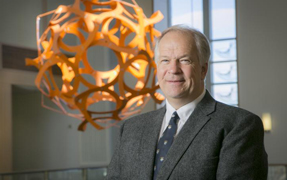Carmelo Rosales-Guzmán: The 2023 SPIE Early Career Achievement Award — Academic Focus

Carmelo Rosales-Guzmán received his PhD from ICFO, the Institute of Photonic Sciences, in 2015, and then worked as a postdoctoral fellow in SPIE Fellow Andrew Forbes’ Structured Light Laboratory. In 2018, he became an associate professor at the Harbin University of Science and Technology, and, in 2020, a principal investigator at Centro de Investigaciones en Óptica. His areas of interest and research include laser beam shaping, optical communications, optical angular momentum, optical metrology, vector light beams, and classical entanglement.
Rosales-Guzmán’s active involvement with SPIE includes participation on the Scholarship Committee as well as the conference program committee for Laser Beam Shaping. He has authored and presented multiple conference proceedings and has led SPIE student chapters in South Africa and China. With Forbes, he wrote and published How to Shape Light with Spatial Light Modulators for SPIE Press.
“Carmelo has been amongst the most successful young researchers I have ever had the privilege to work with,” says Forbes. “He pioneered the creation, detection, manipulation, and application of vectorial structured light, and has established new laboratories in structured light in four continents and, tellingly, in three developing countries. His desire to give back and grow photonics in underrepresented communities is admirable, while the research contributions he has made are remarkable. His many seminal works are highly cited by the community, while his impact at the country level has been and continues to be exceptional: he was a fantastic mentor for South African students before moving to China and establishing new photonics labs and training a new generation of students there; in Mexico, he has already established national collaborations and brought structured light into the Centro de Investigaciones en Óptica. It’s unusual for a researcher to accomplish so much so early in their career: The high level of his science, produced and applied in developing countries, makes him an excellent role model not just for other scientists, but for underrepresented groups across the globe.”
Meet the other 2023 SPIE Society Award recipients.
Read more about Carmelo Rosales-Guzmán and the SPIE Early Career Achievement Award — Academic Focus.



